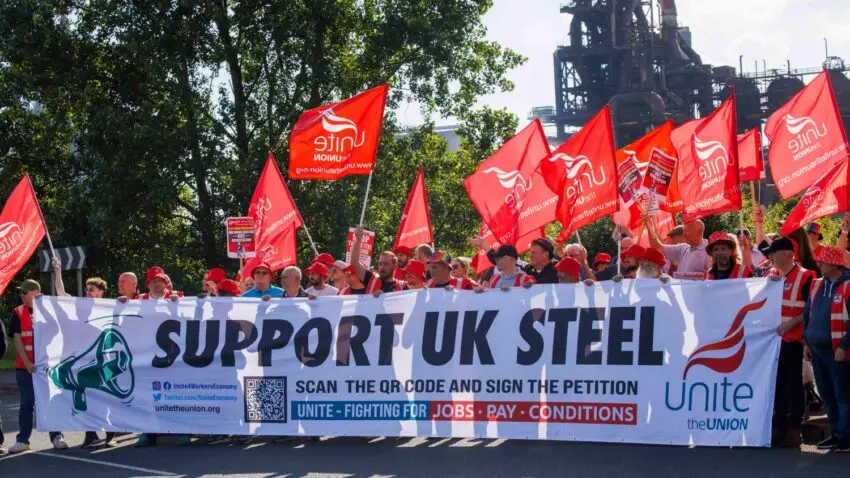Labour is pressing Tata Steel to hold off on shutting down the blast furnaces at Port Talbot. This comes as Unite union members threaten to strike.
Labour leaders argue that delaying the closures until after the general election might open a window for a potential Labour government to negotiate a better deal.
Tata Steel’s Announcement
Tata Steel recently announced plans to accelerate the shutdown of its blast furnaces at the Port Talbot plant. The decision is primarily driven by the impending industrial action from the Unite union members.
Impact on Workers
Port Talbot, known for being Britain’s largest steel producer, is bracing for significant changes. Workers at the South Wales site were informed about the potential early shutdown, leading to widespread concern.
Unite has initiated strike action to protest the shutdown, fearing the loss of thousands of jobs. The first strike is scheduled for July 8, prompting Tata to consider taking preparatory steps to close operations no later than July 7.
Labour’s Position
Labour politicians have voiced strong opposition to Tata Steel’s plans. Stephen Kinnock and David Rees issued a joint statement stressing the need to prioritise the safety and security of steelworkers.
They argued, “Tata wouldn’t be facing strike action if it hadn’t chosen to proceed with the closures so hastily. We have consistently urged Tata to avoid any irreversible actions until after the general election.”
Labour proposes a £2.5 billion steel renewal fund to help keep operations afloat. They believe discussions with a future Labour government could lead to a more favourable outcome for the steel industry.
Tata’s Defence
Tata Steel has defended its decision, emphasising the safety of people on or around its sites. They highlighted the significant cost and disruption involved in pausing or stopping heavy operations like the blast furnaces.
The company insists that the move is not taken lightly and is in response to the looming strike. They plan to invest £750 million to decarbonise UK operations under the existing agreement with ministers.
Legal Actions and Reactions
Tata has taken legal action against Unite’s strike ballot, aiming to halt the industrial action. The company sees this as a necessary step to protect its operations and employees.
Unite’s general secretary, Sharon Graham, described Tata’s actions as a series of intimidations. She urged key decision-makers in Mumbai to intervene, stating that the threats won’t deter the union’s resolve.
The union remains steadfast in its opposition, arguing that an early shutdown would cost thousands of jobs and severely impact the community.
Call for Intervention
Labour leaders have called for immediate intervention to delay the closure. They hope this will allow time for negotiations that could result in a better deal for steelworkers and the industry.
The proposal to maintain one blast furnace until the electric arc furnace becomes operational has been rejected by Tata. This plan is backed by Community and GMB unions but would cost taxpayers more than the current £500 million offered by the Conservative government.
The debate continues as both sides prepare for the upcoming strike, leaving the future of Port Talbot hanging in the balance.
Uncertain Future
The uncertainty surrounding Port Talbot’s future has created a tense atmosphere. Workers, unions, and politicians remain hopeful for a resolution that will safeguard jobs and the local economy.
Labour’s appeal to Tata Steel highlights the urgency of finding a resolution that protects workers and the community.
Delaying the closure until after the general election could pave the way for more favourable negotiations, potentially securing a better future for Britain’s largest steel producer.

